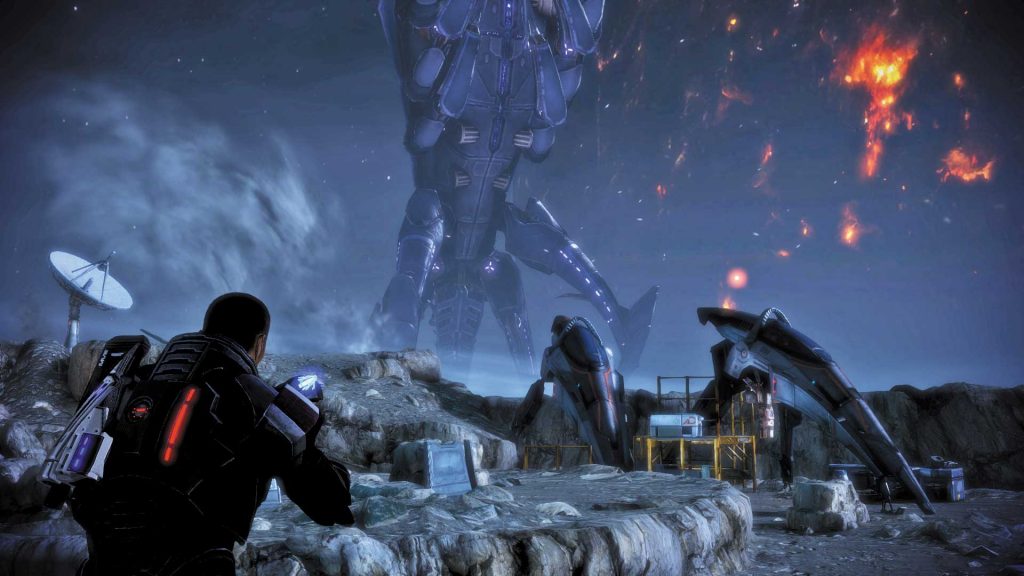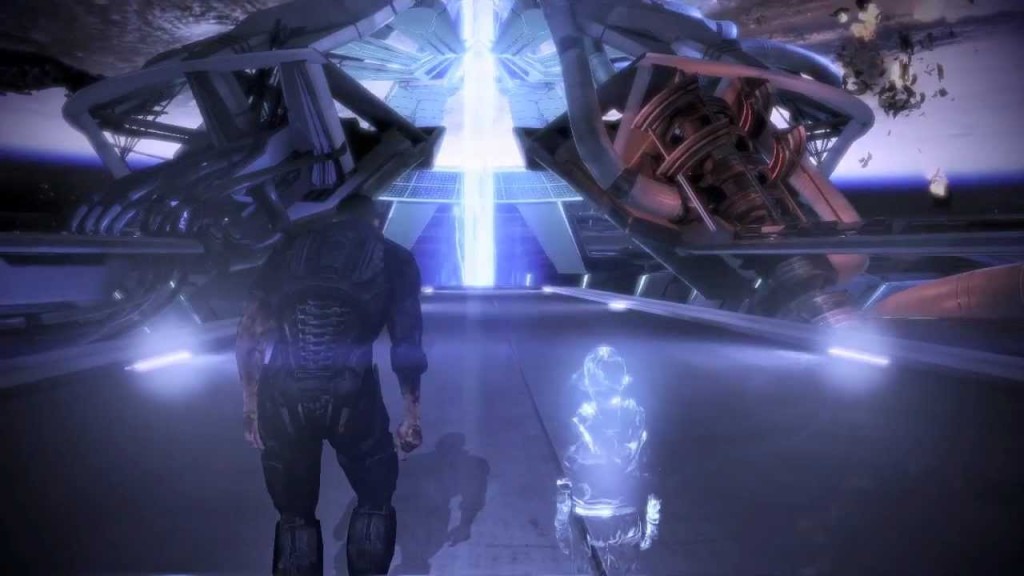Mass Effect 3 was the perfect conclusion to the series, hitting a series of emotional highs and lows, immersing you in a world full of memorable characters with an incredible journey. Mass Effect 3 is the pinnacle of choice-based gaming, and while some may argue the choices you make don’t completely carry over, there are some significant consequences that follow through all three games which cause the third installment to be extremely emotional.

Mass Effect 3 made me feel as if I was Shepard; I felt what he felt — I laughed, I wept, I went on an incredibly spiritual journey. And that is what makes the game so great: it is completely immersive. Forget what choices carry over and what choices seem to be pertinent; the story is deeply spiritual and delves deep into Shepard’s psych to make the difficult decisions, as he/she has always done. There are incredibly difficult choices that unknowingly lead to teammate’s deaths; there are choices that are so hard to make but they are the only choice to make. Playing simply Renegade or Paragon doesn’t really work in Mass Effect 3, or rather, it is incredibly difficult to do so because your conscience will tell you not to, every single time, because of certain choices that either betray your once-loyal comrades and result in their deaths or choices that simply aren’t so black and white as the classification system would have you believe.

One such example in the game is Mordin. He is a brilliant scientist at the end of his life, trying to right his wrongs and cure the Krogan infidelity. Shepard is faced with a choice: lie to him about the cure, or tell him the truth, which results in his death. Every single time I play the title I simply cannot help but tell him the truth, even if it means his death. The results are tragic, and actually brought me to tears, but in many ways the game is about all the people Shepard has lost in his fight against the Reapers, as they continually haunt him in his dreams. There is even a point in the game where Shepard breaks down and reflects on this fact and questions whether it was all worth it. It is so immersive and brought me a level of catharsis like no game ever had before or since. I was Commander Shepard. So few games are actually able to accomplish that level of interactivity and immersion and it blew me away, even to this day.
Everyone knows the original ending of Mass Effect 3 made almost no sense. There was so much that was missing that it was pretty hard to defend. I loved Shepard’s spiritual journey throughout the game, but the ending was rushed, probably due in part because of pressure from EA, who acquired Bioware, and the fact that they allocated resources to a pointless online mode, although it was somewhat enjoyable. The “red, green, and blue” endings/choices seem a bit cliche, but they work thematically and the entire trilogy built up to that moment. The choices aren’t easy either. I would argue that the “control” choice, which was what the Illusive Man was after, was actually Renegade, although it was “blue” (which denotes Paragon), and that destroy is actually Paragon, as that is what Shepard set out to do from the beginning. The green choice, assimilation, is an anomaly and is actually very intriguing; Shepard’s life force is absorbed, disintegrated, and disbursed into every life form in the galaxy, so while he is “dead”, he does live on, in a sense.

Thankfully, Casey Hudson, Mac Walters and company fixed the holes in the ending and added some additional content to make it both more profound and emotional. I teared up, several times. Some fans complain that this wasn’t the “original ending” intended for the series, but that is not necessarily true . . . to an extent. Drew Karpyshyn has stated that there were many endings that were considered, and one was the spread of Dark Energy with the Reapers trying to prevent this, along with the destruction of the universe. The lead writer on Mass Effect and Mass Effect 2, who was Drew Karpyshyn, had this to say on his blog:
“Of course, some of you are also pinging me to find out what the “original” ending of the series was when we started planning out the trilogy. Sorry, but that’s not something I’m even going to attempt to answer. The collaborative creative process is incredibly complicated, and the story and ideas are constantly evolving as you go forward. Yes, we had a plan, but it was very vague. We knew we wanted to focus on some key themes and bring in certain key elements: organics vs synthetics; the Reapers; the Mass Relays. Beyond that, we didn’t go into detail because we knew it would change radically as the game continued to evolve.”

None of this even takes into account the gameplay of Mass Effect 3, which is superb and takes what 2 did and takes it a step further. Mass Effect 3 is a masterpiece and ends Shepard’s journey in the most beautiful way possible. It is both incredibly emotional and spiritual, and incredibly introspective. Don’t let the different color endings fool you; it’s not necessarily how the game ends, but your journey to get to that point, and that is the most significant part; it’s what Mass Effect 3 did so spectacularly. Bioware built a monolith to live up to, and Mass Effect: Andromeda failed to do so. I feel that nothing can top Shepard’s story; there’s a reason why Western RPGs have declined since Mass Effect 3 came out.
